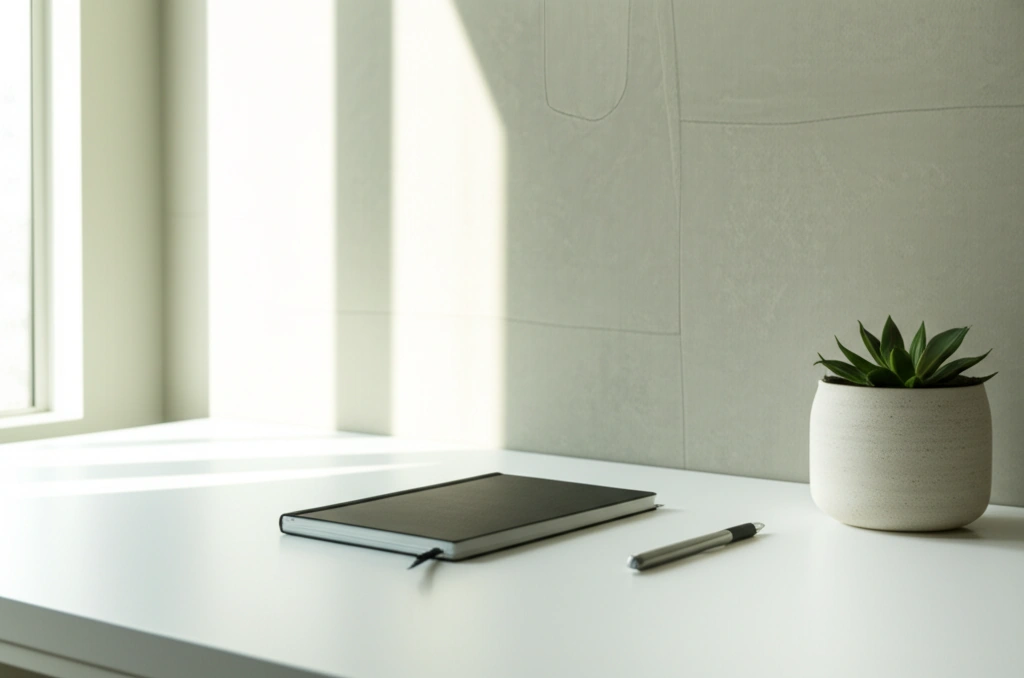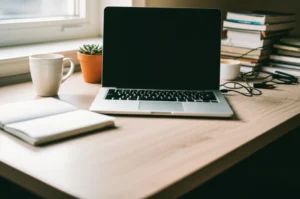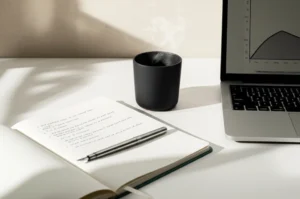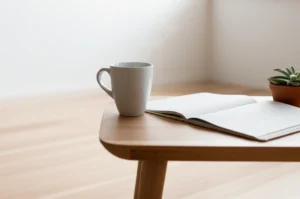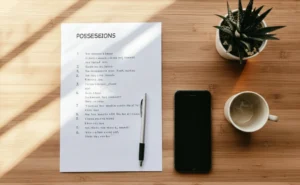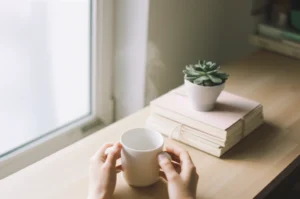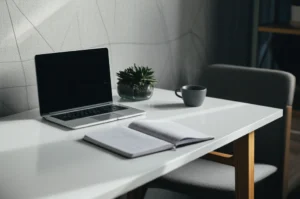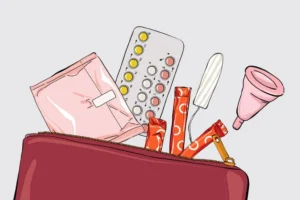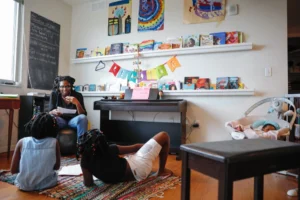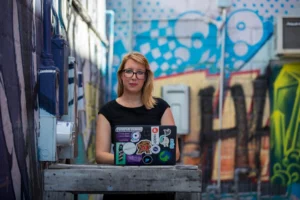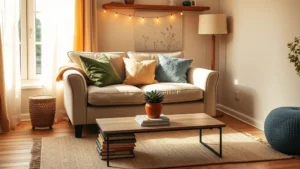Ever felt like your brain is running a marathon, juggling way too many things at once? That constant buzz of clutter—physical stuff, endless to-dos, mental noise—can really wear you down. Here’s the thing: adopting minimalism might just be the refreshing mental reset your mind’s been craving. It’s not just about tossing stuff or having an Instagram-worthy space; the psychological benefits of minimalism run much deeper, soaking into the way you feel, think, and live.
If you’ve ever wondered why some people rave about living minimally but aren’t quite sure how it really helps, or if you’re curious whether it’s the right fit for you, stick around. I’ll walk you through the juicy, science-backed perks of simplifying your life—and I’ll also share some real talk about when minimalism isn’t all sunshine. Ready? Let’s dive in.
What Is Minimalism, Really?
Minimalism sometimes gets misunderstood as a strict, buttoned-up lifestyle where you’re forced to live with just a few belongings. But nah, it’s way more about intention than deprivation. Think of it as intentionally choosing what deserves your time, space, and energy—be it objects, commitments, or thoughts.
Imagine your life is like a crowded playlist. Minimalism helps you press pause on the noise that doesn’t align with your vibe and turn up the tunes that genuinely bring you joy and help you thrive. This might mean decluttering your closet, yes, but it could also mean saying no to certain activities or trimming down your mental chatter.
Why Minimalism Brightens Your Mind
Less Stress And Anxiety
Clutter is no joke—it actually affects our biology. Studies show that living in cluttered spaces can bump up cortisol, our main stress hormone. Elevated cortisol sticks around like an unwelcome guest causing anxiety, restless nights, and even some physical health issues. On the flip side, a tidy, simple environment can calm your nerves and lower stress levels, making your brain feel more at ease.
Think about those days when your desk is a chaotic mess. You sit down, and instead of jumping straight into your work, your eyes dart all over the place, and your brain spins trying to process all that visual madness. That overload weighs on your focus and mood. Clearing the clutter lets your mind breathe—and yes, breathe better means stress melts away.
Boosting Focus And Productivity
When your surroundings aren’t screaming for attention, your brain doesn’t have to multitask like a circus performer. Fewer distractions mean you can zero in on what matters, getting more done with less mental effort.
Ever notice how a clean, organized space feels like a gift of quiet mental space? That’s not magic; it’s your brain working smarter, not harder. By simplifying, you declutter your cognitive load, freeing up bandwidth for creative thinking, problem-solving, or even just savoring a moment of peace.
Time, Freedom, And Fewer Chores
Here’s a little secret: less stuff means less stuff to clean, organize, and worry about. That piles up into saved hours across your week. Imagine reclaiming time that used to be swallowed by household chores—more afternoons for hobbies, naps, or spontaneous fun.
This sense of freedom goes beyond physical stuff too. Simplifying your schedule and commitments does the same for your mental space. Fewer “must-do” obligations means more room for what lights you up personally.
Stronger Sense Of Values And Purpose
Minimalism invites you to hit pause and ask: “What truly matters?” By letting go of the excess, you create mental and emotional space to connect with your values and goals more clearly. You start living your priorities out loud, not just reacting to what piles up around you.
This kind of reflection deepens your sense of self. It’s like mapping out your inner compass, so every choice feels authentic, deliberate, and aligned with your true self.
Better Sleep And Emotional Recovery
A relaxed environment promotes restful sleep—something so many of us struggle with. A minimalist bedroom, free of distracting clutter and chaotic energy, can gently signal your mind and body it’s time to unwind. When your mental space is calmer, emotional ups and downs don’t spin out as often, letting you recharge more effectively.
When Minimalism Isn’t A Magic Wand
Look, minimalism is super powerful—but it’s not a cure-all. If you’re grappling with deep emotional or mental health challenges, just decluttering your space isn’t going to fix those complexities overnight. It’s a helpful tool, but not a replacement for professional support when it’s needed.
Plus, extreme or rigid minimalism can have its downsides. Some folks risk losing meaningful items or social connections in their quest to simplify. Others might use minimalism to avoid confronting underlying emotions or tough life issues. Balance is key.
Have you noticed any downsides or felt the pressure of “having to be minimalist”? Those feelings are important signals worth honoring, not ignoring.
How To Start Enjoying Minimalism’s Psychological Perks
Your Minimalist Decluttering Checklist
Starting simple helps. Here’s a friend-to-friend checklist to get you going without overwhelm:
| Room | Actions | Time Estimate |
|---|---|---|
| Entryway | Clear shoes, mail, and coats. Create neat hooks or bins. | 15 minutes |
| Kitchen | Remove unused gadgets, organize pantry essentials. | 30 minutes |
| Bedroom | Sort clothes: keep what fits & feels good, donate the rest. | 45 minutes |
| Workspace | Desk clear-out: papers, gadgets, stationery—keep only daily necessities. | 20 minutes |
Taking gradual bites makes the process manageable. You’ll be surprised how that quick refresh can lighten your mind.
Smart Declutter Minimalism Tips
Here are some gentle rules to keep your journey pleasant and effective:
- Try the “one-year rule”: if you haven’t used it in a year, consider letting it go.
- Ask: “Does this bring joy, or serve a genuine purpose?”
- Batch tasks to avoid decision fatigue—set specific times to declutter.
- Be kind to yourself with sentimental items. It’s okay to keep a few meaningful things.
If you want a deeper dive on this, these declutter minimalism tips are a great resource packed with practical advice.
The Highs And Lows Of Extreme Minimalism
Ever heard about extreme minimalism? It’s like minimalism’s bold sibling—taking things a bit further. People who dive into this lifestyle swear by the benefits of extreme minimalism, such as finding razor-sharp mental clarity, deep freedom, and a powerful boost in happiness and fulfillment.
But watch out: going too far can lead to social isolation or feeling overly rigid, turning a liberating lifestyle into a stressful one. If you’re curious about trying it, think gradual steps, regular self-check-ins, and balancing simplicity with meaningful connections.
Backing It Up: What The Experts Say
The psychology of minimalism is well-studied and backed by solid research. For example, scientific studies link cluttered environments to higher stress hormone levels and worse mood, while minimal spaces support better mental health. Research also shows minimalism helps reduce anxiety and improves focus by easing cognitive load.
Experts emphasize that minimalism isn’t about deprivation—it’s about thoughtful choices that support your well-being. And when combined with strategies like therapy or mindfulness, minimalism can be a powerful part of a happier, healthier life.
Want to see the science and read more from trusted voices? According to a study published on the health impacts of minimalism, fewer possessions and distractions foster a calmer mind and better emotional regulation—a point worth keeping in mind as you embark on your own minimalism journey.
Wrapping It Up
So, what’s the bottom line? The psychological benefits of minimalism aren’t just a fleeting trend—they’re real and deeply impactful. From lowering stress and sharpening your focus to giving you precious time and space to discover what truly lights up your soul, minimalism offers a heartfelt invitation to live more intentionally.
But remember, it’s no magic fix. It’s a beautiful tool—one that works best alongside kindness to yourself and, when needed, support from mental health professionals.
Ready to start? Why not try a small step today: pick a single drawer or corner to declutter. Notice how that feels and let your mind savor the little win. And hey, if you ever want tips or want to share your story, just keep the conversation alive in your own way.

